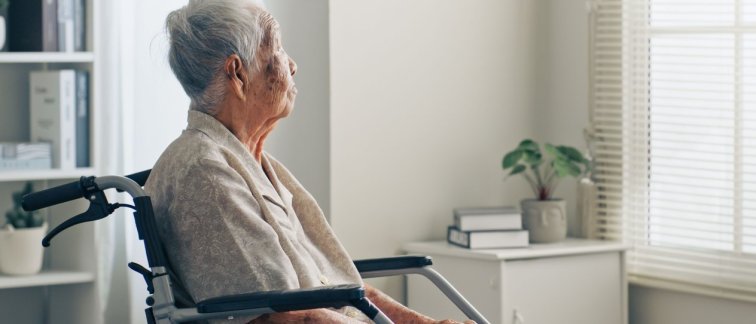The well-being of older adults depends heavily on social connections, healthy eating, exercise, and activities. And loneliness in older adults leads to various physical problems. This is evident from research by Emiel Hoogendijk of Amsterdam UMC. Fortunately, something can be done about this unhealthy loneliness.
“Loneliness is beneficial to no one, but for older adults, it is demonstrably bad for their health,” says Emiel Hoogendijk, an epidemiologist specializing in frailty in older adults. This kind of frailty encompasses a broad range of physical decline, such as weight loss, reduced mobility, and decreased muscle strength. As you decline in these areas, your physical frailty increases, making you more susceptible to falls, for example. “Then you enter a downward spiral: when people fall and break something, they may need to go to the hospital.” In 2017, Hoogendijk received a €250,000 Veni grant from the Netherlands Organization for Scientific Research (NWO) for his research on frailty in older adults.

Unhealthy
Hoogendijk is part of an international collaboration of researchers from the UK, Canada, Australia, and Sweden. They reviewed 130 studies that tracked the relationship between social functioning and physical frailty in people aged 50 and older over time. Notably, these frailty studies reveal the health consequences of loneliness for older adults: “Loneliness leads to stress, and stress is harmful to the immune system. When the immune system weakens, it leads to more illnesses. Loneliness also affects the brain; you experience things differently when you’re lonely.” Loneliness leads to various physical problems. Researchers observe unhealthy lifestyle habits, such as not cooking for oneself, lack of exercise, and excessive smoking and drinking. Thus, loneliness leads to both physical and mental health decline. “This makes the effects of loneliness comparable to lifestyle problems.” A strong social network helps prevent loneliness, but the type of network also matters: “Having only family contact is less effective than being able to rely on a diverse network. It’s easier to discuss different things or engage in activities with friends and acquaintances.”
Looking out for each other
Is there anything that can be done about this unhealthy loneliness? A lonely older person can’t just pull a new group of friends out of thin air. “Yes, it is still reversible,” says Hoogendijk. “There should be a system in place to keep an eye on people. For example, in healthcare: include loneliness and frailty in the list of priorities. Interventions should be tailored to the individual situation: what is the cause of the loneliness? You can add more structure to the life of a lonely older person, ensuring they meet more people. And indeed, we need to look out for each other more.”
Week against Loneliness
From September 26 to October 2, the Ministry of Health, Welfare and Sport (VWS) is organizing the Week Against Loneliness, with a focus on connection. During this week, hundreds of activities will take place where people can meet and make new connections. Week against Loneliness (in Dutch) (eentegeneenzaamheid.nl).
This is a shortened and translated version of an article from the recently published science magazine of Amsterdam UMC, Janus 2 – 2024 (in Dutch). Read previous editions of Janus science magazine (in Dutch).
Original text: Mieke Zijlmans
Photos: Adobe Stock and Kim Regelink (portrait)

